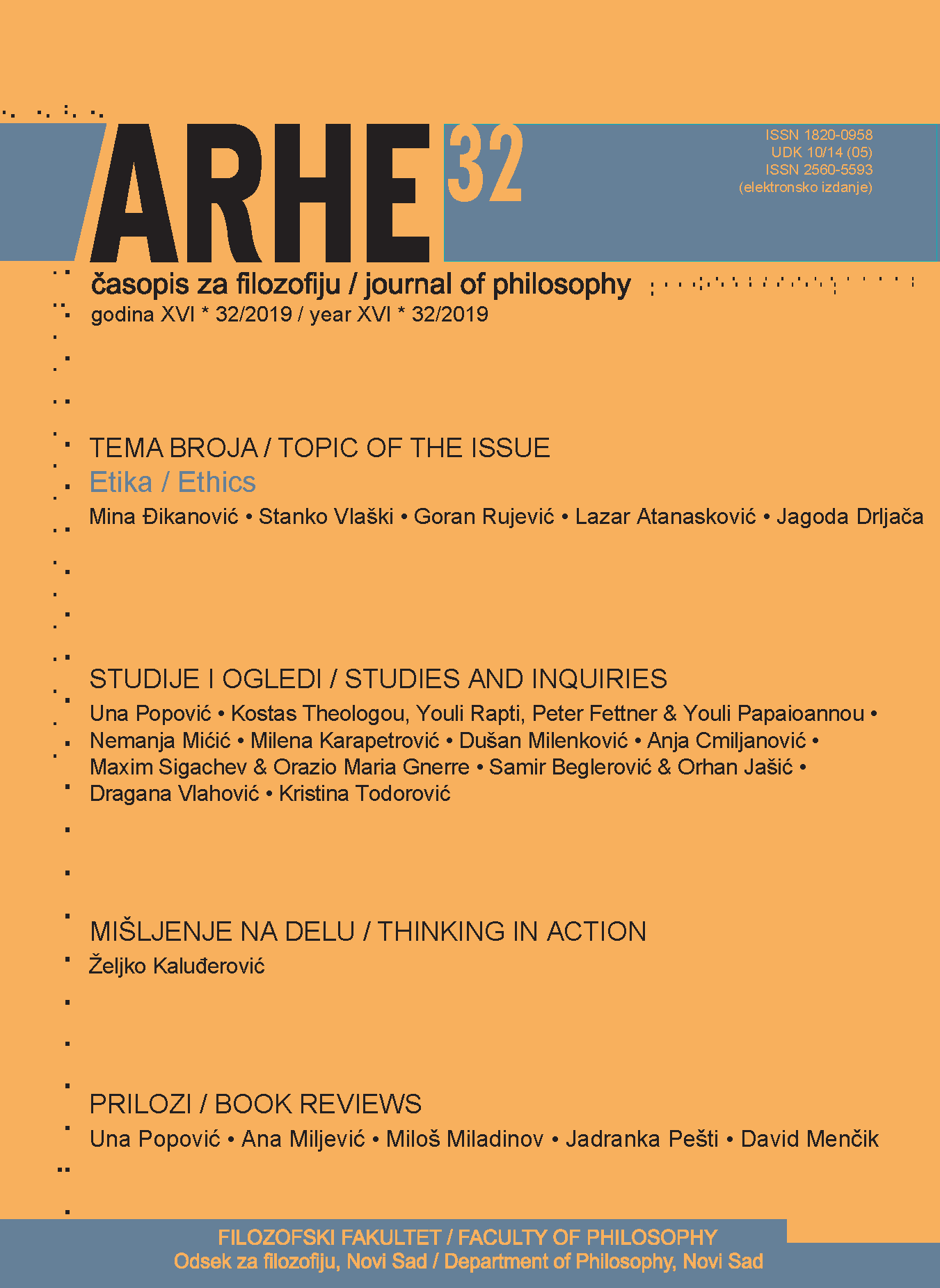Početi od sebe? Kant i Hjumovo poimanje morala
Start From Oneself? Kant and Hume’s Concept of Morals
Author(s): Stanko VlaškiSubject(s): History of Philosophy, Metaphysics, Ethics / Practical Philosophy, German Idealism
Published by: Филозофски факултет, Универзитет у Новом Саду
Keywords: Kant; Hume; causality; spontaneity; is; ought; moral sense ;practical reason ;ethics; metaphysics
Summary/Abstract: The paper discusses the nature of Kant’s attitude toward Hume’s concept of morals starting from the question concerning the way Kant developed Hume’s critique of the concept of causality. The author tries to demonstrate that this critique is crucial not only for Kant’s discovery of the spontaneity of understanding in the theoretical sphere but that this critique finds its completion in the act of free will as the absolute causation. This causation remains an unsolvable puzzle for the theoretical pretensions of metaphysics. Hume’s problematization of the relation between judgments concerning what is and judgments concerning what ought to be was the more direct impetus of Kant’s insight into the undisputable possibility of will to follow its own, moral law and to do what ought to be done independently from any experience. The final part of the paper is directed toward thesis that, from the Kantian standpoint, the difference between "is" and "ought to" could not be properly considered from the position of ethics of moral sense as Hume’s ethics was, as well as toward the risk that by widening the gap between these two spheres, moral "ought to" – as a deontologized idea of causa sui – remains finally a metaphysical hypostasis.
Journal: Arhe
- Issue Year: 2019
- Issue No: 32
- Page Range: 33-55
- Page Count: 23
- Language: Serbian

